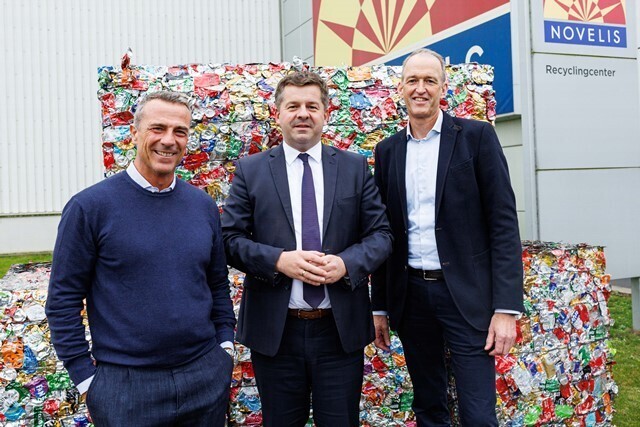Celebrating a decade of innovation & sustainability at Nachterstedt Aluminium Recycling Centre
In 2011, Novelis made a groundbreaking move by shifting its business model to focus on recycling, sparking significant investments in expanding recycling capacity and capabilities. This strategic shift led to the creation of one of the world’s largest aluminium recycling centres, fundamentally transforming the aluminium industry. Today, the Nachterstedt Aluminium Recycling Centre (NARC) celebrates its 10th anniversary, highlighting a decade of trailblazing innovation and sustainability, solidifying Novelis’ position as a leading force in aluminium recycling.

Image Source: Novelis
“At NARC, we can cast aluminium ingots for car bodysides made from 86% scrap. Aluminium ingots for beverage can bodies with a recycling content close to 100% showcase our way of decarbonizing aluminium for consumer goods and our strong ambition towards a fully circular economy,” said Emilio Braghi, Executive Vice President Novelis and President Novelis Europe.
Since 2011, Novelis has raised the recycled content in its global product range from 33 per cent to 63 per cent, with an ambitious goal of reaching 75 per cent by 2030. This milestone underscores Novelis’ unwavering commitment to reducing the carbon footprint of its products and striving for complete circularity in aluminium production.
A strategic investment towards sustainability
With an investment exceeding €300 million, the Nachterstedt Aluminium Recycling Centre (NARC) was built as a state-of-the-art facility capable of recycling up to 400,000 tonnes of aluminium annually. Strategically located in the heart of Europe, NARC supplies high-recycled-content ingots to Novelis Europe’s rolling plants, where they are further processed into low-carbon, innovative aluminium solutions. These products serve a range of major industries, including automotive, beverage packaging, and speciality products.
Recycling aluminium cuts energy consumption by approximately 95 per cent compared to primary aluminium production and significantly lowers carbon intensity. In this regard, NARC reduces carbon emissions by around 3.7 million tonnes of CO2e annually. This achievement greatly minimizes the plant’s carbon footprint and plays a vital role in reducing carbon emissions throughout the downstream aluminium value chain.
“We are proud to be able to meet the increasing market demand for high-recycled aluminium solutions, directly contributing to our customers’ carbon reduction and sustainability goals,” added Emilio Braghi, Executive Vice President Novelis and President Novelis Europe.
Addition of advanced sorting technology
The addition of advanced sorting technology at the Nachterstedt Recycling Centre in 2024 will further enhance the efficient use of post-consumer aluminium scrap for high-quality products. This innovation is expected to replace approximately 8,500 tonnes of primary aluminium annually, reducing over 80,000 tonnes of CO2e emissions each year. Implementing this cutting-edge technology at NARC is anticipated to be completed by 2024.
“Novelis sets standards to strengthen Germany and Saxony-Anhalt as a location for sustainable aluminum solutions and impressively demonstrates how the circular economy and economic success can go together. As an important employer, Novelis makes a decisive contribution to the economic strength of the region and develops innovative solutions that receive international recognition. Saxony-Anhalt is proud of companies like Novelis, whose commitment contributes to the positive development of our state,” stated Sven Schulze, Minister of Economic Affairs of Saxony-Anhalt.
Continued Recycling Leadership
As NARC marks its 10th anniversary, Novelis continues to look ahead, maintaining its leadership in sustainable aluminium production and steering the industry toward a more sustainable, lower-carbon future. NARC represents more than just a facility—it embodies Novelis’ vision for a circular future.
The site plays a pivotal role in advancing Novelis’ ambitious sustainability objectives, including becoming the leading provider of low-carbon flat-rolled aluminium solutions with emissions of less than 3 tonnes of CO2e per tonne of aluminium shipped by 2030 and achieving carbon neutrality by 2050 or sooner.
This news is also available on our App 'AlCircle News' Android | iOS
























